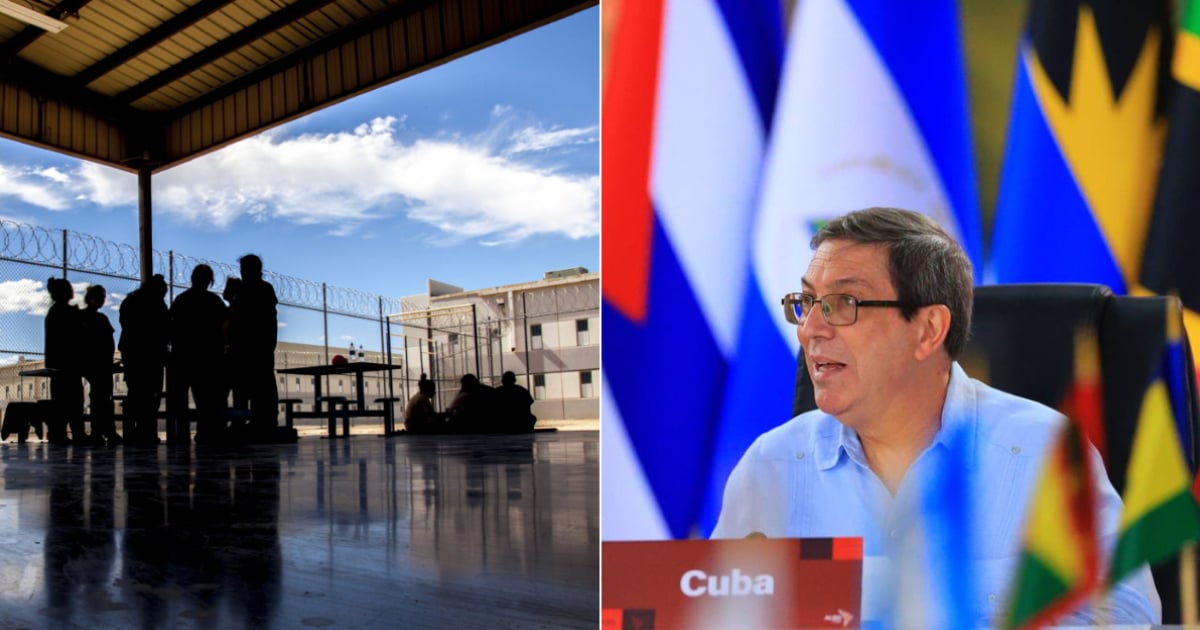The Cuban Foreign Minister, Bruno Rodríguez Parrilla, asserted on Friday that the United States enforces "discriminatory, repressive, and illegal policies" against Cubans residing there, actions he claims undermine their dignity and human rights. "While resorting to blackmail, intimidation, and an increasing number of unilateral coercive measures against our nations, violating International Law," the diplomat added on his official X account (formerly Twitter).
These remarks from the Cuban regime's representative, made during an ALBA-TCP meeting, were met with skepticism and criticism, given Cuba's ongoing record of systematic human rights violations. The Cuban government continues to hold hundreds of political prisoners, violently suppresses protests, restricts fundamental freedoms, and further impoverishes the population, forcing hundreds of thousands of Cubans to flee, particularly to the United States.
The very Cubans that the foreign minister now claims to defend were driven out by a lack of opportunities, ideological persecution, and the economic collapse caused by a system that denied them a future. Once abroad, these individuals are viewed by the regime as a financial resource through remittances and shipments to their families, who often become emotional and economic hostages, paying exorbitant prices imposed by the monopoly of Grupo de Administración Empresarial S.A. (GAESA), which controls the dollarized economy under military and dictatorial oversight.
As Havana attempts to cast itself as a protector of its nationals in the U.S., it ignores numerous international reports highlighting the absence of civil and political rights guarantees within the island. The regime's concern seems less about the dignity and human rights of Cubans and more about maintaining the financial inflows that support its shaky economy. This duplicity reveals the deep hypocrisy of a totalitarian communist system that claims to protect those it expelled while continuing to deny basic rights to those still under its governance.
The Deportation Dilemma
Recently, the Cuban regime labeled the threat of deporting Cuban migrants from the United States as an "act of cruel cynicism," despite many of these migrants having fled the island's repression and dictatorship. Accepting their return challenges the official narrative, which blames external factors for the mass exodus while ignoring the internal causes: censorship, harassment, and lack of basic freedoms.
On March 27, a new deportation flight arrived in Havana with 60 expelled Cuban migrants from the U.S. At least two were detained upon arrival, one for previous criminal charges and another for having emigrated on parole. These cases amplify international concerns over the treatment of returned Cubans, who may face interrogation, surveillance, and social restrictions upon reentry.
The regime's focus appears to remain on financial survival rather than genuine concern for the rights and dignity of the Cuban people. This duplicity further highlights a system that continues to deny fundamental rights to its citizens, while claiming to defend those it once forced to leave.
Key Concerns Regarding Cuban Migrants in the U.S.
Why does the Cuban government criticize the U.S. regarding Cuban residents?
The Cuban government accuses the U.S. of implementing discriminatory and repressive policies against Cuban residents, which they claim violate human rights and dignity.
What is the role of GAESA in Cuba's economy?
GAESA, a military-controlled enterprise group, plays a significant role in managing Cuba's dollarized economy, often imposing high prices on remittances and shipments from abroad.
How does the Cuban regime handle deported migrants?
Deported migrants may face detention, interrogation, and surveillance upon their return to Cuba, raising international concerns about their treatment and rights.
